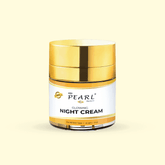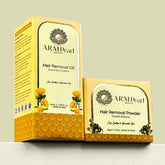The Ultimate Guide for choosing the right Sunscreen
Introduction To Sunscreen
Now that it is peak summer, we must protect our skin from the harmful sun radiation. As the temperatures are rising our skin is exposed to more Sun radiation. In this hotness we must pamper our skin with the products it keeps skin safe. Sunscreen shields our skin from the harmful sun radiation. Choosing the right sunscreen is necessary for protecting our skin from the harmful effects of the sun. In this article, we'll understand the science behind how sunscreen works and provide simple tips and techniques for selecting the best sunscreen and protect our skin.
What Is Sunscreen?
Sunscreen is a skincare product designed to protect the skin from the sun's ultraviolet (UV) radiation. The more exposure of our skin to UV radiation can cause sunburn, premature aging, and skin cancer. Using sunscreen acts as a layer that helps prevent these harmful rays from harming our skin and keep the skin healthy. We have to apply proper lip balm with SPF 30 to protect our lips.
Ultraviolet Radiation (UV) rays are electromagnetic radiation emitted by the sun. These rays are invincible to human eyes. We get Vitamin D from these UV rays. Excessive exposure to these radiation causes sunburn, premature aging, and increased risk of cancer. But at times we cannot avoid by spending long times in the hot sun and exposing to UV rays. In such cases we must use Sunscreens as they protect our skin from harmful UV rays.
There are 3 types of UV radiation that sunscreen helps protect against: UVA, UVB and UVC.
UVA rays penetrate deep into the skin and cause premature aging and contribute to skin cancer risk, while UVB rays primarily cause sunburn. UVC has the shortest wavelength and so its radiation is absorbed by the Ozone layer surrounded by earth. Effective sunscreens provide broad-spectrum protection, shielding the skin from both UVA and UVB rays.
How Sunscreen Works?
Sunscreen contains active ingredients that absorb, reflect, or scatter UV radiation to prevent it from reaching our skin. The active ingredients of Sunscreen include organic (chemical) and inorganic (physical) compounds. Organic sunscreens work by absorbing UV radiation and converting it into heat, which is released from the skin. Common organic UV filters include avobenzone, octinoxate, and oxybenzone. In contrast, inorganic sunscreens contain mineral ingredients such as zinc oxide and titanium dioxide, which act as physical barriers, reflecting and scattering UV radiation away from the skin. Organic Sunscreens are non-greasy, light weight.
What Is Filter In Sunscreen?
In sunscreen terminologies, a "filter" is an active element that provides protection against harmful ultraviolet (UV) radiation from the sun. These filters absorb, scatter, or reflect UV rays to prevent them from penetrating the skin and cause damage. There are two main types of filters used in sunscreens:
Organic (Chemical) Filters
Organic filters absorb UV radiation and convert it into heat, which is then released from the skin. The common organic filters include avobenzone, octinoxate, and oxybenzone.
Inorganic (Physical) Filters
Inorganic filters use mineral ingredients such as zinc oxide and titanium dioxide, which act as physical barriers on the skin's surface. These minerals reflect and scatter UV radiation away from the skin. Thus, protecting our skin from Sun rays.
Both types of filters offer effective protection against UV radiation, and sunscreen formulations frequently contain a combination of organic and inorganic filters to achieve broad-spectrum protection. By incorporating appropriate filters into sunscreen products, we can safeguard our skin from sunburn, premature aging, and reduce the risk of skin cancer.
How To Choose the Right Sunscreen?
We must consider several factors to ensure optimal protection and compatibility with our skin type when choosing Sunscreen. We must understand about SPF to choose the sunscreen. It is Sun Protection Factor that measures Sunscreens ability to protect our skin from UVB rays.
Sun Protection Factor (SPF)
SPF indicates the level of protection against UVB rays. Choose a sunscreen with an SPF of at least 30, which blocks around 97% of UVB rays. As the SPF value increases, the level of protection against UVB rays also increases. It’s important to note that the relationship between SPF value and actual protection is not linear.
Higher SPF values offer increased protection, the difference in protection between SPF values becomes less significant as the numbers rise. Day Cream with SPF 50 is formulated to shield your skin from harmful UV rays. For example, SPF 30 blocks about 97% of UVB rays, while SPF 50 blocks about 98% of UV radiation. Beyond SPF 50, the incremental increase in protection becomes minimal, leading to diminished returns. Therefore, remember that higher SPF values may offer a slightly greater margin of protection, they may not necessarily provide significantly better coverage than lower SPF options. It's still crucial to apply sunscreen generously and reapply regularly, regardless of the SPF value chosen, to ensure adequate protection against sunburn and skin damage. In corporate Day Cream with SPF 50 into your skincare routine for all-day sun protection and a radiant, healthy complexion.
Broad-Spectrum Protection
There are Sunscreens with Broad-Spectrum Protection. These sunscreens protect against both UVA and UVB rays. By selecting a broad-spectrum sunscreen, we can ensure that our skin is shielded from the full spectrum of harmful UV rays, maintaining its health and vitality.
Water Resistance
When we swim, we can opt for water-resistant sunscreens. They maintain their effectiveness for a specified time (typically 40 or 80 minutes) while exposed to water or perspiration.
Skin Type
When choosing Sunscreen, we must consider our skin type and sensitivity. Individuals with sensitive skin can use mineral sunscreens as they are less likely to cause irritation. Some sunscreens have additional features such as moisturization, antioxidant protection, or tinted formulations, which can provide added benefits and convenience for our skin.
How To Apply Sunscreen To Our Skin?
We must ensure effective protection of our skin; it is necessary to apply sunscreen properly. At times it would be required to re-apply.
- Apply sunscreen generously to all exposed skin areas at least 15 minutes before sun exposure.
- Apply approximately one ounce (enough to fill a shot glass) to cover the entire body.
- We must re-apply sunscreen every two hours or immediately after swimming, sweating, or towel-drying to maintain adequate protection to the skin.
Dispelling common myths about sunscreen can help you make informed choices about sun protection:
Myth1: People believe we don't need sunscreen on cloudy days.
Fact: UV radiation can penetrate clouds, so it is necessary to apply sunscreen even on overcast days.
Myth2: People judge dark skin doesn't need sunscreen.
Fact: Agree that darker skin tones have more natural protection against UV radiation, sunscreen is still essential for them too to prevent sun damage and skin cancer.
Myth3: Sunscreen prevents vitamin D production.
Fact: Sunscreen does not completely block vitamin D synthesis, and adequate vitamin D can be obtained through diet and supplements.
Conclusion
Choosing the right sunscreen and understanding how it works are crucial steps in protecting the skin from sun damage and reducing the risk of skin cancer and premature aging. By selecting a broad-spectrum sunscreen with an appropriate SPF and applying it correctly, we can enjoy the sun safely while maintaining healthy, radiant skin for years to come.















Leave a comment
Please note, comments need to be approved before they are published.